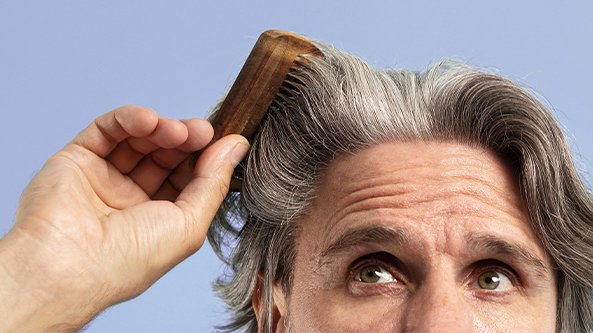He played a key role in saving the Pitcairn Islands, where nine of the famous Bounty mutineers sought refuge, now an 834,334km2 marine reserve since 2016. He also encouraged Chile to transform Rapa Nui, Easter Island, into another reserve. He assisted Belize in establishing a marine protected area for the Turneffe Atoll. And, perhaps his most impressive achievement to date, he helped the UK government create the broadest marine reserve in the world: the British Indian Ocean Territory, an area of 640,000km2 in the middle of the Indian Ocean, containing the Chagos islands and the world’s largest coral atoll reaching 60,000km2. Co-chaired by siblings Ernesto and Dona Bertarelli, the Bertarelli Foundation (named after the Italian Swiss family which owned the biomedical multinational Serono, of which Ernesto was CEO; Ernesto also won the America’s Cup twice with Alinghi) has committed $53 million over the past eight years in aid of the deep blue.

An image of the Chagos Archipelago, 55 islands in the middle of the Indian Ocean: in 2010 they became the planet’s largest marine reserve
Ernesto Bertarelli, why are you so committed to the sea?
«Our philanthropic initiatives began with medical research, and with a focus on infertility. This was done in memory of our father, Fabio, who had dedicated his life to the sector. As for the sea? Philanthropy isn’t just about dedicating money to a cause, it’s also about dedicating your time and passion to something you care about. My sister and I chose the sea because we both feel a strong connection to it, a connection we owe to our parents. We realised this and began to think of what we could do to help».
What were the first steps?
«We began with marine reserves, now managed by my sister, while my focus is more on the British Indian Ocean Territory. On research. I thought I might be able to offer my experience. The Chagos islands have become more than a reserve. The archipelago is now a unique laboratory».
Why is it unique?
«Because, barring a military hub on the island of Diego Garcia, the rest is entirely uncontaminated, there is no human presence whatsoever. This allows us to have access to a sterile environment, a laboratory which lets us study the sea, marine species and birds without a hint of human interference. It’s a great opportunity to help gain a better understanding of what is going on: the rise in water temperature, pollution and their impact on corals, marine species and birds. Right now, on the Chagos islands, we are gathering a lot of important data».

Why is the data so important?
«I don’t think words alone can make a difference, they need to be supported by data. And the more data is shared the more it becomes common knowledge. The Chagos islands are also important because of where they are, in the middle of the Indian Ocean, the ocean I believe to be in the most danger. The Pacific has its own resources and is stronger. The Atlantic can count on relatively responsible countries on its shores. The Indian Ocean is the most exposed».
To plastic?
«It’s one of the most evident and worrying problems. There aren’t any humans on the Chagos archipelago but there is a lot of plastic. For now, we are doing our part to keep the islands clean. Although generally speaking plastic is a problem we have yet to focus on».
What is your vision?
«It relates to our modus operandi on the Chagos islands in terms of research. Not an absolutely new approach but one which is definitely original for marine sciences and ocean conservation. It’s the modus I came into contact with in biomedical sciences and which is based on researchers sharing their results with one another».
Have you ever asked yourself if all of this will be enough?
«I start from the idea that everyone should do their part. I do mine, with my own skills and resources, and I hope this can inspire others to do the same. However, I don’t want to be seen as someone wanting to solve all the world’s problems. That would be impossible. I find areas that interest me and apply my passion to them, I have visions that sometimes work and sometimes don’t».

Can the private sector replace governments?
«We study, understand and explain the issue, but a political and legislative step forward is needed before change can happen. And that doesn’t just go for governments. In the Ocean, there are limitations for nations as well. Think of the high seas, untouched by national jurisdictions. When a fisherman trespasses into a marine reserve only to sail back out into the high seas, who intervenes? Perhaps the UN».
And the Mediterranean?
«The Mediterranean is an “elderly” sea, having sustained civilisation itself but also years of abuse. An enclosed sea, in which it is difficult to hope for any exceptional revitalisation. However, tuna is back, there are reserves in the Bocche that are yielding positive results…».
Will you be doing anything for the mare nostrum as well?
«A day doesn’t go by without someone presenting me with a proposal. For now, I have decided to focus on the Chagos islands since I believe they are showing great potential for unique insights into marine conservation. The project was launched last year, it will last 3-5 years and is very demanding. Once this is over, we’ll see».




I commenti dei lettori